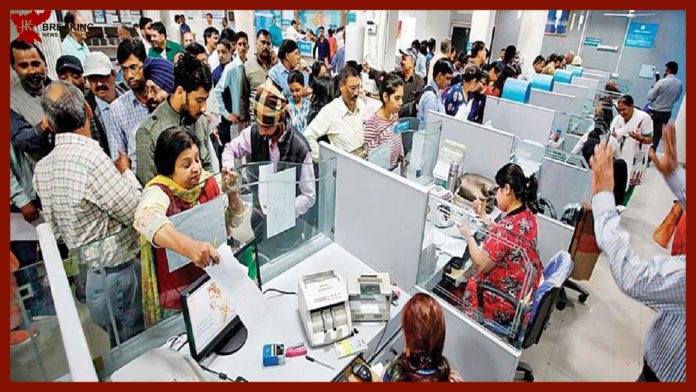RBI Bank Minimum balance Rules: Nowadays opening a bank account has become so easy that everyone has their own bank account. But many times people do not have complete information related to bank account (RBI bank guidelines) due to which they may face problems. Often banks charge non-maintenance fine from customers for not keeping a fixed amount in the bank’s savings account. Recently RBI has changed many rules related to this. Let us know them in detail-
There are many guidelines related to bank account that you should be aware of. These include the maximum amount that can be deposited in the account, ATM and debit card charges, check charges and many other things. The Reserve Bank of India (RBI) has issued comprehensive guidelines regarding each of these topics. For more information about this, read this article till the end. Different banks have set their minimum amount limit. For some banks, the minimum amount limit is Rs 1 thousand, while for other institutions the minimum amount limit is Rs 10 thousand.
Total cash deposit of Rs 50,000 or more
These savings accounts also have cash deposit limits. According to income tax rules, a person can deposit up to Rs 10 lakh in his savings account in the entire financial year. If you deposit more than this amount, then banks have to report the transaction to the Income Tax Department. Apart from this, you will also have to include your PAN number along with the total cash deposit of Rs 50,000 or more in your account. Up to Rs 1 lakh cash can be deposited in a day. Also, if you do not deposit money regularly in your account, this limit can be up to Rs 2.50 lakh.
Heavy penalty on depositing more cash
If you deposit more than the limit of Rs 10 lakh in your account and do not give satisfactory information about its source in the income tax return, then scrutiny is possible. If you are caught in this scrutiny, then a heavy penalty (Bank Minimum Balance rules) will be imposed on you. If you do not tell about the source of income, then 60 percent tax, 25 percent surcharge, and 4 percent cess can be levied on the deposited amount.
If the source is clear, then there is no need to fear
We all deposit money in savings account to keep our earnings safe. In such a situation, its maximum limit is not fixed. But, it is certain that if you keep more money in the account and do not disclose its source of income, then it is possible that the income tax department may notice it. If the source of income is clear, then you do not need to fear.
Claim deduction under section 80TTA
The interest you get from the bank is added under income from dividends and profits in your ITR and thus comes under the tax net. Although there is a limit of Rs 10,000, the interest earned from bank deposits in a financial year should be more than Rs 10,000 to come under the tax net (High Interest rates). If your interest is more than Rs 10000 then you can claim a deduction under section 80TTA of the Income Tax Act.
Tax has to be paid on savings account as well. Higher income and interest from the bank can also be taxed. The bank gives a certain percentage of interest on depositing money for a fixed period. This interest (Tax saving tips) can be fixed or floating depending on the market and bank policy.
Minimum balance in savings account
State Bank of India: If you live in a metro city, you must keep at least Rs 3000 in your State Bank of India account.
If you live in a small city, you must have a minimum balance of Rs 2000 (SBI minimum balance rules).
If you have an account in a village bank, you have to keep at least ₹1000 in your savings account.
Punjab National Bank: In metro cities, you have to maintain a minimum balance of ₹2000 (PNB minimum balance rules), and in rural areas, you have to maintain a monthly balance of ₹1000.
HDFC Bank: In HDFC bank, you have to maintain a minimum balance of ₹10000 in regular savings accounts.
And people who have savings accounts in rural and small towns have to maintain an average minimum balance of ₹5000 and ₹2500 (HDFC minimum balance rules).
ICICI Bank: ICICI Bank customers have to maintain a minimum balance of Rs. 10,000 in metro urban areas, Rs. 5,000 in semi-urban and rural areas and Rs. 2,000 in rural areas (ICICI bank minimum balance rules).
Yes Bank: In Yes Bank, the minimum balance in metro cities is Rs. 10,000 and in rural and urban areas, the minimum balance is Rs. 2,500.
If you have an account in any bank other than zero balance, then check the minimum balance limit in the bank branch (Yes bank minimum balance rules) so that you do not have to pay any kind of charge.


